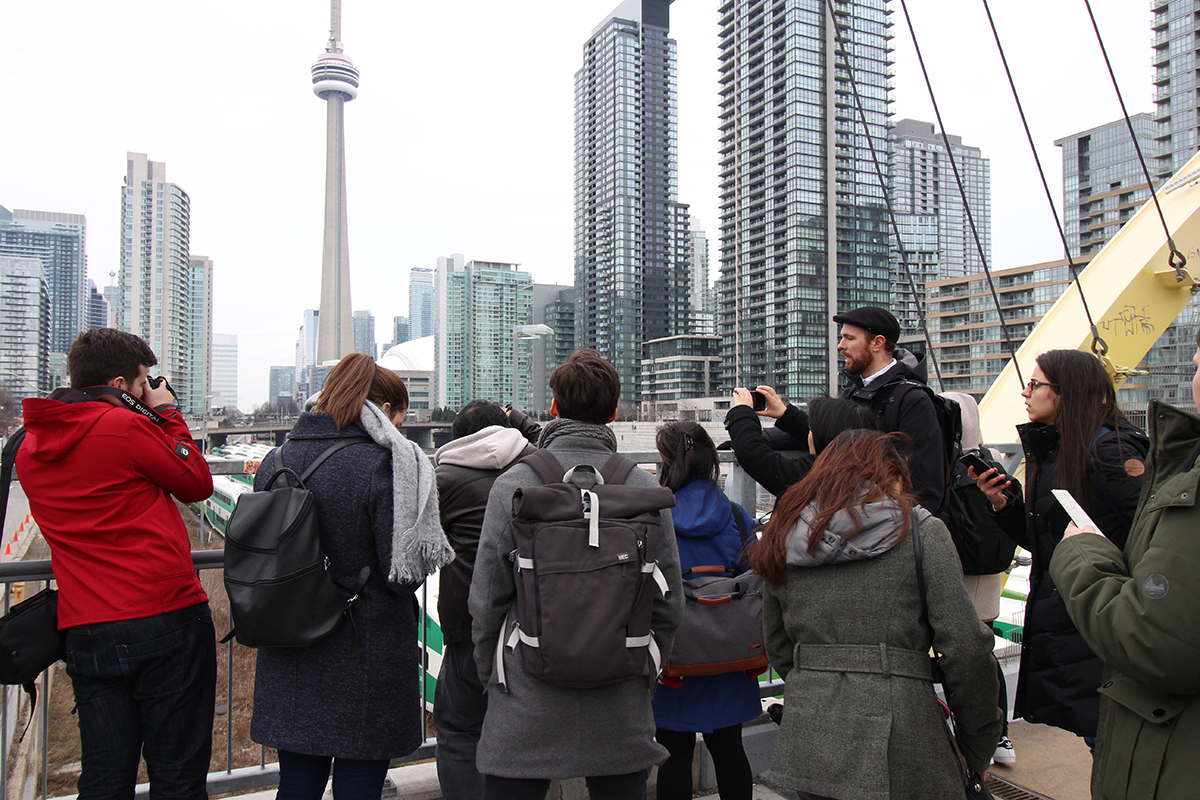

The students will be guided by mentors from all DIALOG disciplines – architecture, mechanical, electrical and structural engineering; planning and urban design; landscape architecture; and interior design – ensuring the students are immersed in our integrated design approach.
The six-week term will include weekly desk-crits and pin-ups, and an incredible roster of industry experts who’ll be sharing their experience. The students will benefit from the guidance and support of professionals who are deeply invested in the outcomes for Rail Deck Park: input from the City of Toronto Planning Department; tackling urban challenges with major developer stakeholders; and collaborating with city-builders who’ll be participating in the studio curriculum.
Rail Deck Park has the potential to significantly improve the social-economic face of Toronto, but it requires multiple perspectives and disciplines collaborating together to be successful. Our decision to partner with Carleton University is an investment in the future generation of designers, providing the students with an opportunity to work in a professional studio alongside committed city-builders who genuinely care about the future of Toronto, and to solve this challenge together.
The Halfway Mark
Four weeks ago, the Carleton students arrived at our Toronto studio. Since the initial kick-off meeting at Toronto City Hall, the students have made incredible progress to master plan and design the ultimate Rail Deck Park strategy. Learning from industry leaders, as well as our own experts, the students worked tirelessly to develop and successfully deliver their compelling master plans to Toronto’s City Planners.
There’s also been a lot of public interest in the Rail Deck Park project. In March, David Anderson and Marisa Renaud took time out of their schedule to sit with CBC’s Matt Galloway to discuss the feasibility of the Rail Deck Park project on Metro Morning.
Being immersed in our Toronto studio has allowed the students to benefit from discussions with our various discipline experts. Presentations from Jeff DiBattista, Daria Khachi, Jim Anderson, Craig Applegath, Antonio Gomez-Palacio and Rob Fiorino have helped inform the students on everything from how to approach complex structural engineering challenges, to impactful storytelling and presentation best practices.
The Carleton Studio at DIALOG also included presentations from third party industry experts. Hugh Clark (Allied) and Gabriel Leung (Concord Adex) came in to give the students a crash course on the business of development, and how developers work in partnership with the city. Goncalo Pedro from RWDI also visited the Carleton Studio to provide the students with insight on how to consider thermal and wind comfort when designing for the Rail Deck Park site.
After several weeks of desk crits, pin ups, presentations and lots of hard work, the students were finally ready to present their Master Plans to the city.
On March 20, Toronto city planners Scott Pennington and Heather Oliver visited our Toronto studio to review the Master Plans developed by the students. Celebrated Toronto Urban Planner, Judy Matthews, was also invited to join the panel. Matthews has been involved with many public sector planning projects, including the revitalization of St. George St., U of T’s open space master plan, the Kings College Road project, the Music Garden at Harbourfront, the Harbourfront pedestrian piazza and waterfront promenade, the Parks and Trees Foundation, and a Board member of Park People.
The students, unphased by the impressive panel, delivered their presentations without a hitch. The quote of the day belonged to City Planner Scott Pennington, who said that he was “..blown away by the progress you have made in only three weeks!”

The Carleton Studio at DIALOG will conclude with students completing detailed explorations of program, use, connectivity, access, building development, and architectural design of Rail Deck Park. Their final work will be presented to the Faculty of Architecture and Urbanism at Carleton University on April 17.